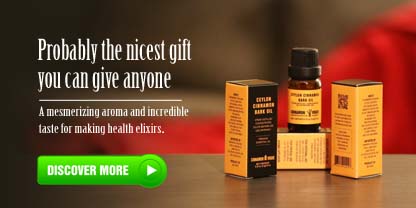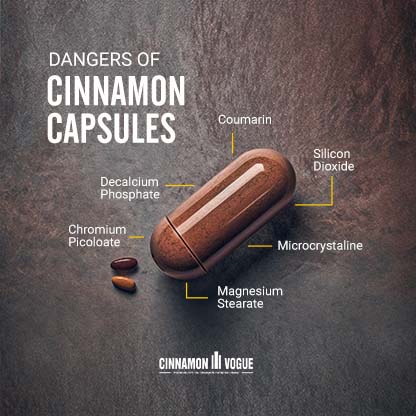


DANGERS OF CINNAMON CAPSULES
While Ceylon Cinnamon has become popular for treating diabetes and other health ailments one must understand that the evidence is still not definitive. At least according to western science. But the greater danger comes when people start taking Cinnamon capsules, pills, gel tabs and tablets. It is becoming clear supplements of any type are a waste of money. Here is brief run down on what Cinnamon supplements could contain.
1. SILICON DIOXIDE
Like most herbal supplements, Cinnamon capsules have an ingredient called Silicon Dioxide. This is widely used in the supplement industry as an anti-caking agent. The problem is that it has a variety of side effects. According to this article the side effects include headaches, arthritis, mood swings, neuroses, allergies and immune disorders and Chronic Fatigue Syndrome, Silicon Dioxide increases pressure on connective tissue, nerves and ganglia, interrupts neurological function, inhibits blood flow, inhibits proper metabolism, inhibits proper muscle function, inhibits adequate healing responses, inhibits proper nutrition absorption and toxin elimination. While occasional capsules ingestion may not have an effect, the fact people are taking so many supplements could create a cumulative effect. Watch this interesting video.
2. MAGNESIUM STEARATE
Cinnamon capsules like most supplements also has a substance called Magnesium Stearate which according Dr. Mercola suppresses T cells—your natural killer cells and causes the collapse of cell membrane integrity—an effect that was found to be time and dose dependent—which, ultimately, can destroy cell function.
3. MICROCRYSTALINE
A refined wood pulp used as a texturizer, an anti-caking agent, a fat substitute, an emulsifier, an extender, and a bulking agent in tablet production. While generally safe, it can cause allergies and more frequent bowel movements.
4. DICALCIUM PHOSPHATE
Some Cinnamon tablets contain Dicalcium phosphate (DCP), a dibasic calcium phosphate formed by a reactive combination of calcium oxide and phosphoric acid. It is also virtually insoluble in water and used as a delayed release component, for time release cinnamon capsules. According to Livestrong too much dicalcium phosphate, or dicalcium phosphate taken in conjunction with other medications, can have negative consequence such as nausea, vomiting, loss of appetite, constipation, stomach pain, thirst, dry mouth and increased urination.
5. TOO CONCENTRATED
According to the US Department of health, Cinnamon appears to be safe for most people when taken by mouth in amounts up to 6 grams (1.2 tsp.) daily for 6 weeks or less. Most capsules are1000 mg which is well within the safe zone but we really have no way of knowing the potency of these Cinnamon capsules, which could be too high or too low to have any effect.
6. COUMARIN CONTENT IN CINNAMON CAPSULES
There is no indication which Cinnamon is used to manufacture most Cinnamon capsules. Cassia Cinnamon has high levels of Coumarin, a substance known to cause liver failure, while Ceylon Cinnamon has approximately 0.04% and does not represent any significant danger of liver failure. Some manufactures like Nowfoods for example have switched to Cassia Cinnamon ostensibly due to a shortage of Ceylon Cinnamon but it could also be due to the much cheaper price of Cassia Cinnamon.
7. CINNAMON CAPSULE QUALITY
As with all capsules, the process of distilling Cinnamon into capsule form maybe be significantly diluting the effects of Cinnamon. For example 2 sticks of real Cinnamon (8g ) has good levels of Fiber (13.5%), Manganese (73%), Calcium (8%) and Iron (4%).
Does Cinnamon capsules strip away these beneficial compounds and thus negate its blood sugar control properties too? We think it is the combination of these compounds that may make it work to control blood sugar. But we are more concerned about the manufacturing quality of these Cinnamon tablets often with no traceability to who manufactures them or a comprehensive ingredients list. Some manufactures list Cinnamon Extract (cinnamomum ramulus) (twigs) on their ingredients list, an obscure cinnamon of poor quality grown in Guangdong China.
8. CORROSIVE EFFECT ON STOMACH
Ever wondered why they tell you to eat something with your pills? This is because concentrated medication can damage your stomach lining. The same rules apply to Cinnamon. It can create stomach and intestinal pain/discomfort. Put some cinnamon powder or chew on a cinnamon tablet on your mouth and hold it. If it burns imagine what it does to your stomach lining which is much softer. Ideally you want to mix some Cinnamon powder or grind tablets with your food and take it gradually. In that case better to take real Ceylon Cinnamon powder as opposed to a pill.
9. CHROMIUM PICOLATE
This artificially created substance called Chromium Picolate is added to some Cinnamon capsule supplements (usually marked Cinnamon Plus Chromium) to enhance weight loss, increase lean body mass, and improve glycemic control. Natural Chromium occurring in whole grains, processed meats, coffee, nuts, brewer’s yeast and even wine and beer is different to ones created in the lab. According to this study it can cause renal impairment when ingested in excess. According Dr. Stephen Woski listed in this article " chromium picolinate could potentially cause oxidative damage in cells, including DNA breakage. In some cases, DNA damage is known to cause genetic mutations and cancer in humans ".
10. FILLERS
There are many Ceylon Cinnamon pill sellers on Amazon. Some of them use fillers like rice flour which actually spikes insulin levels. Others use Ceylon Cinnamon but has a high proportion of roughage.
Only one very thin layer of Ceylon Cinnamon Bark has Cinnamon. Cut another layer and it is nothing but wood pulp. This is called the Ash content which should not exceed 5% according to the Sri Lanka government SLS-81 standards. Some sellers in Sri Lanka will adulterate Ceylon Cinnamon powder used to make pills with a greater proportion wood from the Cinnamon tea. Wood that has no Cinnamon. The difficulty assessing quality is another reason we do not sell Ceylon Cinnamon pills.
If you really want some potent Ceylon Cinnamon, try our Ceylon Cinnamon Bark Oil. Yes you can ingest it. 1-3 drops per day but start with 1 drop mixed in hot water or hot tea. Our tiny Ceylon Cinnamon Bark Oil bottle has about 170 drops so it even works out cheaper than any pill.
 |
 |
 |
|---|
TAKING CINNAMON FOR HEALTH
If you are want to take Cinnamon for health reasons, try the real thing. Work with a doctor. Cinnamon has side effects that you may encounter as we list here.
Use Cinnamon in moderation as part of a healthy program of moderate exercise, good nutrition, quality non genetically modified food and never over indulging in anything, even Cinnamon.
Taking Cinnamon in large doses and expecting it to work miracles is not going to work per se. Make Cinnamon part of an overall program of health. Always consult a physician even before taking medication or even plain Cinnamon.
Related articles
Live Science - May 14,2015 -Cinnamon Supplements May Be Risky for people taking statin
CNN - Hidden dangers in Vitamin Supplements
Dr. Oz - The Hidden Dangers of Dietary Supplements
Consumer Reports - Dangerous supplements. The good and the bad.
NY Times - Safety of Herbal Supplements Pulls Prosecutors together
Market Watch - Dietary supplements: a $37billion scam?
ABC Catalyst - The Truth about Vitamins
 |
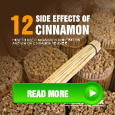 |
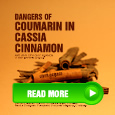 |
|---|---|---|
 |
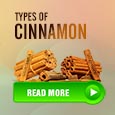 |
 |
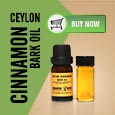 |
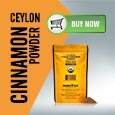 |
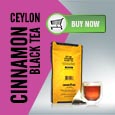 |
